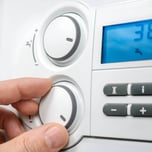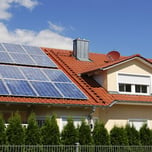Answer these simple questions and we will find you the BEST prices
Which type of solar quotes do you need?
It only takes 30 seconds
100% free with no obligation

Get up to 3 quotes by filling in only 1 quick form

Slash your energy bills by installing an energy efficient boiler

We’ve helped over 500,000 homeowners reduce their carbon footprint
- GreenMatch
- Boilers
- Boiler Efficiency
Boiler Efficiency Explained: How Efficient is Your Boiler?

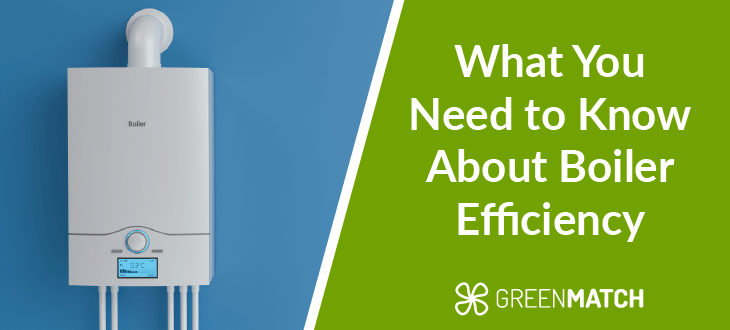
With heating bills making up a large part of homeowners’ energy expenses, it makes sense you’d want to save on your monthly payments. One way to do this is to ensure that the appliances warming up your home are at their most efficient.
At the moment, boilers are the primary heating systems warming up homes across the UK. You can lower your energy expenses and reduce the amount of fuel you need by maximising your boiler efficiency.
In this guide, we explain boiler efficiency and help you take steps towards making the most out of your boiler. This way, you avoid overspending on your energy costs and you can save hundreds a year on your heating bills!
In need of a new boiler? This guide can help you with that, too. Finding the accurate new boiler cost for your home can be a time-consuming challenge. Instead of spending days researching companies, you can now get the process started in 30 seconds!
By filling out our quick and simple form, you can get in touch with up to 3 local Gas Safe registered engineers. You can then request quotes for new boiler installations. To ensure that you are not overpaying for your boiler upgrade, you can compare the quotes you receive and find the best deal and installer for your home.
Get started today by clicking the button below to get free, no-obligation quotes.
- Quotes from local engineers
- Payment by finance available
- Save up to £975
It only takes 30 seconds



What is boiler efficiency?
What we mean by boiler efficiency is how well your boiler converts fuel into heat. The efficiency of your boiler is calculated as a percentage based on how much fuel is converted into usable energy and how much is wasted in the process.
The best way to check boiler efficiency is to look at where it ranks on energy efficiency rating systems. As of 2015, most boilers will be rated with the ErP (Energy related Products) system. This way, efficiency percentages are assigned a corresponding letter rating from G (lowest efficiency) to A+++ (most efficient).
If your boiler has an A+++ rating, it means that it has an efficiency of around 150% and higher. If it is labelled C to G, your boiler operates at a maximum efficiency of 82%, with the lowest percentage being below 30%. In this case, you are spending a lot more money on your heating bills than homeowners with a highly efficient boiler.
To avoid these high costs, you can replace your boiler and maximise its efficiency. While it can be quite the initial expense, you will be saving exponentially on your heating bills in the long run. You will want to consult a heating engineer to find the accurate price for a new high efficiency boiler for your home.
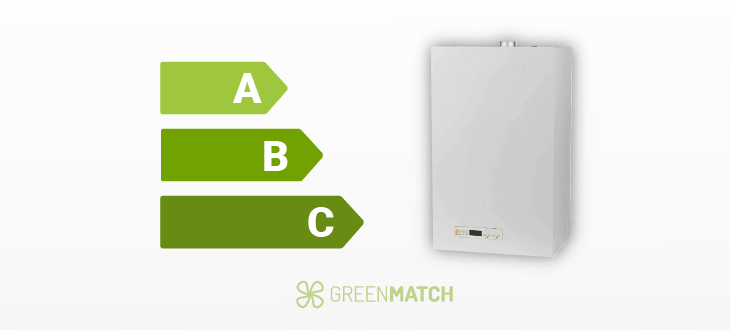
With proper maintenance, you can ensure that your new boiler continues to operate efficiently for years to come. Each boiler type has a minimum lifespan of 15 years, which can stretch up to 25 with adequate care. So, unless it breaks and you notice that it does not heat up your home as efficiently anymore, you will not have to worry about replacing your new boiler for quite some time.
Checking where your boiler ranks on energy efficiency rating scales also helps you determine whether your appliance is efficient. You can refer to the ErP and SEDBUK energy labels for a better idea.
Their method of assigning efficiency levels to products such as boilers is meant to help homeowners choose the most efficient products for their homes. This allows them to reduce their energy expenses, as well as their carbon emissions. Below is a brief rundown of both the ErP and SEDBUK.
What is the ErP boiler efficiency rating?
ErP stands for Energy related Products and it is a European system for rating product efficiency. ErP came into effect as a directive in September 2015, when it was introduced by the EU as part of its efforts to reduce carbon emissions. ErP incentivises manufacturers to produce more energy efficient products, which are then labelled from G (lowest efficiency) to A+++ (highest efficiency).
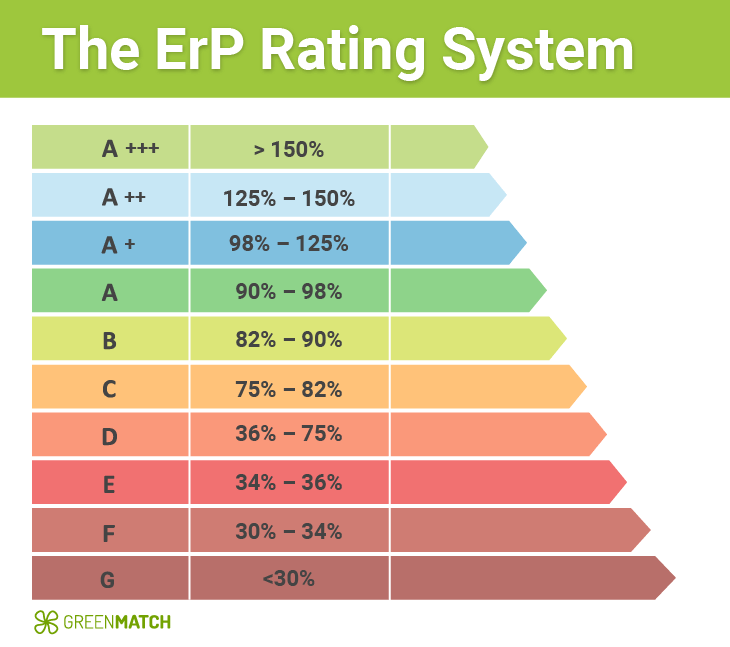
The ErP Directive also made it mandatory for boilers to have higher efficiency in order to be sold. If a boiler does not meet the standards of high energy efficiency, it cannot be produced or installed. This ensures that, by default, homeowners will be able to purchase only highly efficient boilers.
What is the SEDBUK boiler efficiency rating?
SEDBUK (Seasonal Efficiency of a Domestic Boiler in the UK) was introduced by the UK government to ensure that new boiler installations met the standards of high energy efficiency. After its introduction in 2015, the ErP replaced the SEDBUK rating system.
Similarly to the ErP, SEDBUK’s labels rated boiler efficiency from G (as the lowest efficiency) up to A (highest efficiency).

Even though it has been replaced, we include this system in our guide because some manufacturers continue to use SEDBUK to rate the efficiency of the boilers they produce.
Why is boiler efficiency important?
In a year, around 55-60% of your energy costs are taken up by your boiler. That is why it is important to have a highly efficient boiler if you want to avoid overspending on your heating bills. By making sure that your boiler is operating efficiently, you can save up to £1130 per year on your energy expenses!
Not only that, but boiler efficiency also allows you to lower your carbon emissions. With a high efficiency boiler, you avoid wasting your fuel and damaging the environment. So, if you’re due for a boiler upgrade, know that the planet and your bank account will both thank you for your choice.
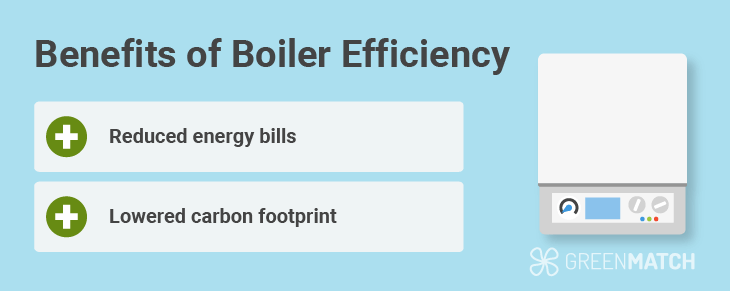
Ready to take the first step towards installing your new boiler but not sure where to begin? We are here to help. Instead of spending days researching and comparing manufacturers and prices, we can assist you in getting the process started in under 1 minute!
By filling in our short form, you can get in touch with up to 3 local installers who can offer you quotes for different types of highly efficient boilers.
Our service is quick, easy and completely free! Click below to receive no-obligation quotes.
- Quotes from local engineers
- Payment by finance available
- Save up to £975
It only takes 30 seconds



How efficient is my boiler?
To know how efficient your boiler is, there are a few points you should consider:
Rating system

To check your boiler’s efficiency, you should check which rating system has. All boilers have an energy efficiency rating. Whether yours has a SEDBUK or ErP label, you can see where on the scale from G (lowest efficiency) to A or A+++ (highest efficiency) your boiler ranks.
The lower your boiler is on these scales, the more fuel you lose in the process of conversion to energy. Ultimately, this leads to you spending more money on fuel to warm up your home.
Year of manufacturing and/or installation

You should also check the year in which your boiler was manufactured and installed. Any boiler installed before 2005 will have a low efficiency of only about 60-70%. If your boiler was installed after 2005, it probably has a higher efficiency because it is a condensing boiler. However, even then it might be due for a replacement by now.
How long you have had your boiler for

All boiler types have a minimum lifespan of 15 years. With the right maintenance and care, this can reach up to 25 years. However, you will want to check whether your boiler loses some of its efficiency during this time.
If you notice that your once efficient boiler is no longer helping you save on your heating bills, you should consult a heating engineer about replacing your appliance. This way, you avoid unnecessary expenses when it comes to heating bills and cut down on your carbon emissions.
Technical specifications

To ensure that your boiler can operate at its most efficient, you must check that you use it in accordance with the technical specifications that come with the appliance. These can vary per boiler type and are provided by the manufacturer.
This documentation includes information regarding heat output, maximum temperature and gas and water pressure, among other characteristics of your boiler. To maximise the efficiency of your appliance, you should make sure that you choose the right one based on your energy consumption.
If you decide that it is time for a boiler upgrade, we can help you get the ball rolling. Finding the right manufacturer and installer can be difficult. But it doesn’t have to be. In less than 1 minute, you can start requesting quotes from up to 3 local installers from our broad network of boiler specialists. You can compare the quotes you receive from them to find the best costs for your home.
Avoid hours of research and fill in our 30-second form to get free, no-obligation quotes.
- Quotes from local engineers
- Payment by finance available
- Save up to £975
It only takes 30 seconds



Boiler efficiency comparison in the UK
The kinds of boilers available on the market today are conventional boilers, system boilers and combi boilers. As of 2005, these must all also be condensing boilers, which means that regardless of manufacturer or model, they are more efficient.
What you should also consider when it comes to determining the efficiency of your appliance is the kind of fuel that it runs on. To make it easy for you to compare efficiency percentages, we provide an estimate of the average boiler efficiency per fuel type.
| Fuel Type | Efficiency (%) |
|---|---|
| Gas | 92–95% |
| Electricity | 99% |
| Oil and LPG | 92–95% |
| Biomass | 89–91% |
If you want to know the exact figures per boiler and fuel type, you should consult a heating engineer. They will be able to offer you exact prices for each kind of boiler and can help you in the process of installing a new highly efficient appliance in your home.
Save hundreds on your energy bills by upgrading to a more efficient boiler
If you are looking to reduce your yearly heating expenses by the hundreds and make a contribution to the environment, opting for a new boiler with a high energy efficiency is a great solution!
Of course, purchasing and installing a boiler is quite the expense. You can ease the impact on your bank account by applying for one of the government boiler grants available across the UK. Check if you qualify for a boiler grant to save on boiler and installation costs.
With or without a grant, you will soon start reaping the benefits of choosing to replace your boiler, as you can save up to £1130 a year on your heating bills. Additionally, you will be making an environmentally-conscious choice that reduces your carbon footprint.
So, even though the price of replacing your boiler may seem daunting, you will find that the long-term advantages for your bank account and the planet outweigh the cost of your upgrade.
If you are looking to avoid the high expenses that come with an outdated boiler, you have come to the right place. We can help you find the right boiler and installer for your home. By filling in our short form, you no longer need to spend hours looking up companies and their services.
Instead, in under 1 minute, you can directly reach up to 3 local installers who can offer you quotes for highly efficient boilers. This way, you avoid being overcharged for your new boiler and you can choose the installer that you want to work with to upgrade your home.
Click below to get your free, no-obligation quotes.
- Quotes from local engineers
- Payment by finance available
- Save up to £975
It only takes 30 seconds



FAQ
The standard percentage for an efficient boiler is a minimum of 92% (for condensing gas boilers). Efficiency also depends on the boiler and fuel type you use.
Your boiler might still operate efficiently after 15 years. However, you will want to regularly check it for wear and tear to make sure that it is still reducing your energy bills after all this time. If it isn’t, you will want to consult a specialist about a new high efficiency boiler.
A high efficiency boiler is one that has a percentage between 92-100% or higher. These are rated A up to A+++ in the ErP energy efficiency rating system.
Absolutely! It might be an initial expense, but over time it will help you save hundreds on your heating bills.

Sabria Schouten is a content writer who aims to make information about sustainable energy broadly available. She believes that knowledge about how to lead a greener lifestyle should be easily accessible to anyone.
We strive to connect our customers with the right product and supplier. Would you like to be part of GreenMatch?




